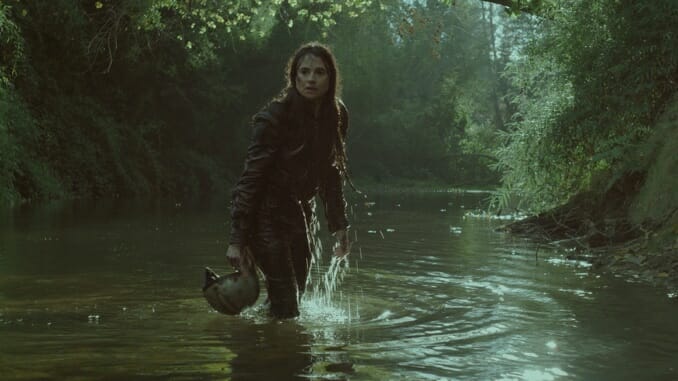Hypnotic Chilean Eco-Fable The Cow Who Sang a Song Into the Future Is a Cerebral Reverie

This review originally ran as part of Paste’s Sundance 2022 coverage.
Magical realism meets the real threat of environmental catastrophe in The Cow Who Sang a Song Into the Future, Chilean director Francisca Alegría’s feature debut following the success of her 2017 short And the Whole Sky Fit in the Dead Cow’s Eye. Though the film can at times feel long-winded—a common predicament when transitioning from shorts to features—it is a heady and hypnotic parable for the irreparable ecological harm humans have committed, while insisting that it’s not too late to connect and reconcile with the land that nurtures us.
When the toxic runoff from a cellulose factory begins polluting the Cruces River in verdant south-central Chile, fish begin dying in droves. As their corpses float atop the drifting water and begin to wash ashore, a haunting hymn appears to escape their lifeless lips. “Come close to us,” they chant in booming unison. “Is the end nigh?” Just when their urgent melody concludes, a woman named Magdalena (Mia Maestro) springs forth from the water’s depths, long hair cascading over a leather jacket and her hand clutching a motorcycle helmet. She gasps for air, crawling out of the river while still coughing up water. It turns out she died in these very waters decades earlier—her death ruled a suicide by local police—and has some unfinished business with the family that has grown up and moved on in her prolonged absence. When she walks into an electronics store to appear before her would-be widow (Alfredo Castro), he immediately suffers an acute heart attack. Worried about her father’s hysterical insistence that her dead mother has returned from the grave, Cecelia (Leonor Varela) brings her two children to spend some time with her on the family’s dairy farm while she cares for the aging patriarch. Little do they know, the cows also have a song to sing, and Magdalena’s presence is more than an old man’s apparition.
-

-

-

-

-

-

-

-

-

-

-

-

-

-

-

-

-

-

-

-

-

-

-

-

-

-

-

-

-

-

-

-

-

-

-

-

-

-

-

-








































